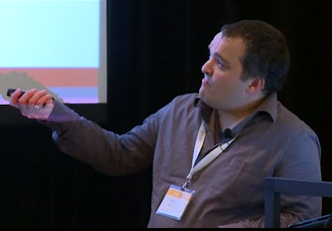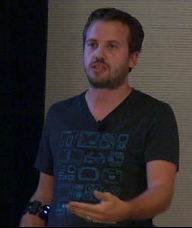std::shared_ptr's secret constructor -- Anthony Williams
std::shared_ptr has a secret: the aliasing constructor, that most users don't even know exists, but which is surprisingly useful.
std::shared_ptr's secret constructor
by Anthony Williams
From the article:
What does this secret constructor do for us? It allows us to construct a new shared_ptr instance that shares ownership with another shared_ptr, but which has a different pointer value...

 Have you registered for CppCon 2015 in September? Don’t delay –
Have you registered for CppCon 2015 in September? Don’t delay –  Have you registered for CppCon 2015 in September? Don’t delay –
Have you registered for CppCon 2015 in September? Don’t delay –  Have you registered for CppCon 2015 in September? Don’t delay –
Have you registered for CppCon 2015 in September? Don’t delay –